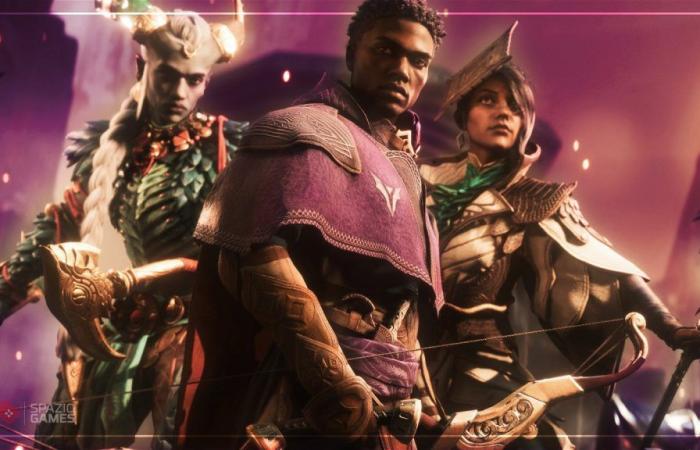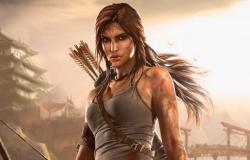Thinking about it, it seems truly incredible that ten years have passed since the release of Dragon Age: Inquisitionthe latest chapter in one of the most beloved RPG sagas of BioWare.
Looking at this last decade, however, one can only regret the situation of a software house that has practically shaped the genre of Western role-playing games, so much so that it is considered its queen. Yet, afterwards Inquisitionwhich already had several problems, they only arrived Mass Effect Andromeda And Anthemtwo titles extremely disappointing and very far from the high quality standards that BioWare fans were used to.
During the recent period of the Summer Game Fest, Bioware finally returned, after years of silence, to present the fourth chapter of its fantasy saga, namely Dragon Age: The Veilguardwith two different trailers: one in CG, designed to reveal the new cast of characters, and another with 15 minutes of gameplay taken from the beginning of the game.
The public’s reactions were not at all enthusiastic – especially for the presentation of the characters, which received over 140 thousand dislikes on YouTube – and even the gameplay trailer failed to change the minds of many skeptics.
The most evident thing about this recent return to the spotlight of BioWare, however, is that we are no longer talking about the studio at the pinnacle of the RPG world of the past, but, rather, about one that now he will have to start from scratch to prove he still has what it takes to create great titles like in the golden days, and thus make a name for themselves again.
The end of Bioware’s magic
Today the BioWare team that is working on Dragon Age: The Veilguard it’s practically a new team.
There was a time when every title made by BioWare amazed everyone by proving itself a revolution for the entire Western RPG genre. We owe the Canadian company milestones not only in the RPG genre, but in the history of video games in general. Among the top two Baldur’s Gate, Star Wars: Knights of the Old Republic and the most recent Mass Effect And Dragon Age: Originsthere are many masterpieces.
Even some minor games proved to be excellent, remaining in the memory of many players: the first is an example of this Neverwinter Nightsequipped with an online system that allowed you to create real marketing campaigns D&D complete with a map editor and a client just to play as a Dungeon Master (I find it absurd that in all these years no one has recycled this idea).
Another great title it was Jade Empire, a martial arts-themed action RPG that was really fun and original for its time (2005). In short, the BioWare of the late 90s and early 2000s was a hotbed of ideasone more successful than the other.
Then it arrived the acquisition by Electronic Arts and the slow decline, with the release of increasingly less convincing titles and with various problems, so as to lead to a free fall of the software house and a total loss of trust on the part of the fanswith episodes still very vivid in their memories today.
In fact, we all remember the controversies surrounding the ending of Mass Effect 3then changed with a patch, or the numerous problems of Mass Effect Andromedaa chapter that many fans prefer pretend it never came out.
Part of the fault also lay with EA, a company that has always had a negative reputation when it comes to acquisitions, so much so that many fans believed that everything they touched was ruined (and you can’t blame them too much, given that other cases). In fact, the choice to have the work completed for Dragon Age II in just fourteen months it wasn’t far-sighted and the end result, while decent, didn’t prove to be at all up to BioWare’s standards.
The problems continued with the imposition by EA itself of the use of Frostbite, a graphics engine that is not exactly malleable, to create Inquisition (you can find it at a very low price on Amazon).
To make the situation worse came the obligation to also develop the game for PlayStation 3 and Xbox 360, which made the development period even more difficult than it already was – and in fact the versions for these consoles were significantly inferior compared to those of the highest performing machines.
Anthem it probably was one of the lowest points in the history of the Canadian software housewho got to work on a live-service third-person shooter full of problems both gameplay and content, to the point that (not surprisingly) it was definitively closed after a short time, precisely due to its failure.
However, the blame was not only on the American publisher, since the situation within the Canadian company’s studios had become increasingly chaotic as the years went by, also leading to several very serious abandonments.
Founders Ray Muzyka and Greg Zeschuk retired in 2012 and subsequently many other veterans of the software house, including some of the main screenwriters, left the company.
Demonstrating the fact that many things had not been working for some time, the definition of “Bioware Magic”, i.e. the ability of developers to pull wonderful games out of the chaos of the development process right at the last minute, making the project a success, so much so that often not even the authors themselves could explain how it was possible.
In reality this term, as later confirmed by some former BioWare developers such as Mark Darrah (once executive producer of Dragon Age), And another way to define crunch hell of the last stages of development, where you had to work like crazy to bring a game to completion.
This denotes how for too long, within BioWare, there has been one poor project management: the situation held up until the team’s greatest talents were present, and then slowly fell apart in recent years – especially because, as highlighted by Darrah himself, such a working method is really bad for tackling the creation of a video game.
Today the BioWare team that is working on Dragon Age: The Veilguard And practically a new teamwhich can no longer use the weight of its name to convince players that their next RPG is as epic as the blockbusters of the past.
It really is a restart from scratch, with which the developers must demonstrate that they have the talent necessary to win back the many fans disillusioned by years of disappointing projects – and, above all, they have to deal with the new generations of RPGs that have now usurped the place of BioWare titles among the role-playing games most loved by the public.
An unconvincing start
When, during the recent Xbox Game Showcase, the first trailer for Dragon Age: The Veilguardmany fans of the saga were left perplexed.
Competition in the Western RPG genre today is much higher than at the time when BioWare dominated and it will certainly not be enough to propose a classic-style Dragon Age to remain impressed.
The purpose of the trailer was to present the cast of characters who will accompany the new protagonist – completely customizable by the player, as per tradition – in this new adventure.
The thing we liked least, causing an avalanche of negative comments, is the new graphic style, much more colorful and almost cartoonishif compared to the darkest fantasy past of the saga – and, even more, a typology of presentation of the new supporting characters halfway between a hero shooter and a Marvel film.
If there hadn’t been the game title and recognizable characters, like Varric and Lace Harding, few would have understood that the one presented was the new one Dragon Age.
The 15 minutes of gameplay shown, then, they certainly didn’t improve the situation. One can understand the desire to propose the initial part of the campaign to avoid too many spoilers and show the incipit of the story, but in this way both the presentation of the combat system was affected – shown only in its basic actions and not in an advanced state – than the role-playing part where choices are made, since nothing really incisive was shown.
The only positive note, at least for the moment, is the fact that the story picks up where it left off Inquisitionwith the plan of Solas in full swing, which can give rise to hope for a more accurate plot that finally delves into the narrative background of the saga.
I am well aware that it is still early to give a judgment on the game, of which we have seen very little, but it is clear that BioWare’s way of presenting it wasn’t brilliant at all. Digging deeply into the statements of the two directors of the game, John Epler and Corinne Buschela, the strengths highlighted are the focus on narrative and character storieswith the possibility of making important decisions that can also change the course of the plot.
The customization of the protagonist will have three classes to choose fromas in the old ones Dragon Agewith any specializations to be selected late in the game, and it will be possible to decide the race and also a narrative background, which will have repercussions in the final game.
They’re basically not telling us anything Dragon Age: Origins of 2009 had not already done so; indeed, this previous title will probably remain unsurpassed, with the introductory part completely different depending on the race and class of your character and the multitude of difficult choices to make throughout the game – choices that led to many different endings.
I repeat: it’s still early to say, but the impression I got from the presentation of Dragon Age: The Veilguard on BioWare’s part isn’t good at the moment, especially because it looks like an RPG that it knows too much of what has already been seen, arrived in an era in which it exists Baldur’s Gate 3.
Even without mentioning Larian’s masterpiece, there are many very good titles that have often established new quality standards in this genre, such as the excellent Disco Elysium or the always loved The Witcher 3not to mention other more classic RPGs such as Obsidian titles.
Competition in the genre today is much higher than when BioWare ruled the roost and it will certainly not be enough to propose a Dragon Age with a classic style, but without particular original touches, to make it a title that can be remembered among the excellence of RPGs.
However Veilguard – like all the latest games created by Bioware, unfortunately – brings with it a troubled developmentwhich began in 2015 and was then paused and reset several times, including the loss of several key team members over time.
The situation was known, but the silence of recent years gave rise to hope that the developers had finally decided what concrete direction to give to the title, something which however cannot yet be ruled out, at least until it will be possible to try the complete game.
For the moment, what was communicated by BioWare on Dragon Age: The Veilguard still fails to fully convince us of the validity of the projectleaving many doubts that will hopefully be dispelled in the future.






